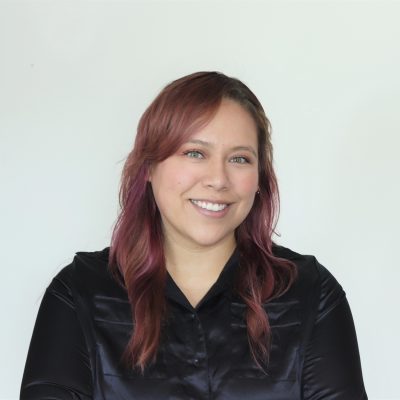Student Spotlight: Adriana Hernández

April 11, 2022
Adriana Hernández is a doctoral candidate in plant biology from Oxnard, California. She attended the University of California, Santa Barbara as an undergraduate and now studies plant evolutionary biology in California’s diverse ecosystems. Hernández is a 2022 Bouchet Scholar.
What is your area of research and why is it important?
I study fundamental principles of plant evolutionary biology in California’s diverse ecosystems, specifically what mechanisms drive floral diversity. The lilies I work on (Calochortus) are incredibly variable in their flower color and petal spots, and by reconstructing their past through genomic and computational tools, I have been able to infer their history of migration, how populations are genetically connected to one another, and the genetic basis of adaptation to the local climate.
What are the larger implications of this research and what is its impact?
This knowledge can be applied to conservation practices such as predicting and mediating the effects of climate change on wild populations and prioritizing species and habitats for preservation. For example, in Calochortus venustus specifically, I’ve been able to identify genes under selection from local climate that are responsible for regulating cold, water, and salt stress. Ultimately, this can help predict how each population will respond to changing climate and better inform which populations may be most vulnerable or resilient.
What does it mean to you to be a Bouchet Scholar?
One of the most difficult challenges I faced as a first-generation scholar is learning how to belong within a culture of people who were guided their whole lives toward higher education. First-generation students rely on a community of peers, mentors, advocates, and institutional support to navigate academic challenges. It is an honor to be recognized among all the scholars who fearlessly work to remove systemic barriers, build institutionalized access toward higher education, and uplift underserved scholars.
How do you exemplify the five pillars of the Bouchet Society – character, leadership, advocacy, scholarship and service?
It is difficult for me to speak of my successes, but my time at Cornell has allowed me to develop my passion for mentorship, to help others gain new perspectives on DEI in academia, and importantly, to develop an independent research program. I’ve grown as a leader through Diversity Preview Weekend, SACNAS, as a Graduate Student Ambassador, and as an advocate for graduate student representation in my department. I focused on helping students from underserved backgrounds like mine who may not have otherwise considered research or STEM careers, or who may not be given the opportunity if faculty continued to rely on standardized tests.
What are your hobbies or interests outside of your research or scholarship?
Aside from outreach, I love the outdoors. For most of my life, I lived a mile or less from the beach in southern California so I frequently walked for miles in the sand, skateboarded and rode my bike with friends, and flew kites on the beach. Perhaps that’s a bit too cliché coming from a Californian, but it’s the truth! In college, hikes transformed into hunts for botanical treasures, and in part that’s what led to my love of botany and field work. I became deeply interested in discovering why organisms are where they are, and ultimately, uncovering species distributions is why I’m an evolutionary biologist today.
Why did you choose Cornell to pursue your degree?
I chose Cornell to pursue the mentorship of my advisor Dr. Chelsea Specht. Although her expertise did not align perfectly with my research interests, her past and current students raved about her inspiring and all-around supportive mentorship style. When I first met Chelsea in person when she was a professor at UC Berkeley, we spent hours discussing inclusion, equity, and diversity, in addition to my scholastic goals, and she genuinely listened to my experiences and ideas. I knew then that Chelsea could provide the guidance I would need to develop my independent research program. Now at the end of my Ph.D. program, I’m extremely grateful that she’s given me freedom to take agency of my work and become my own “style” of scientist.
